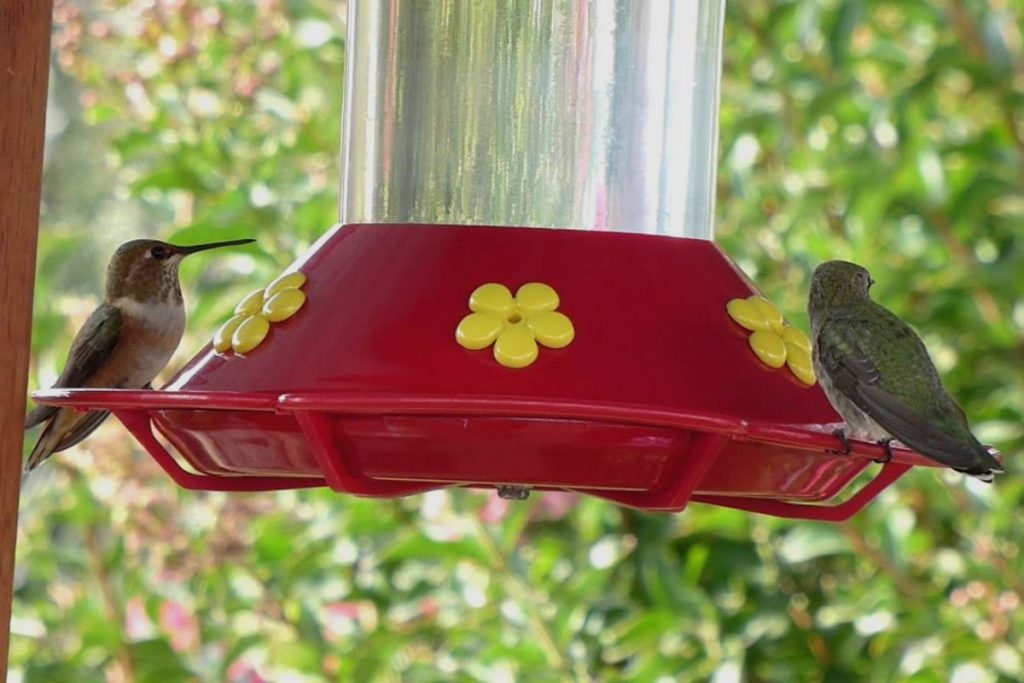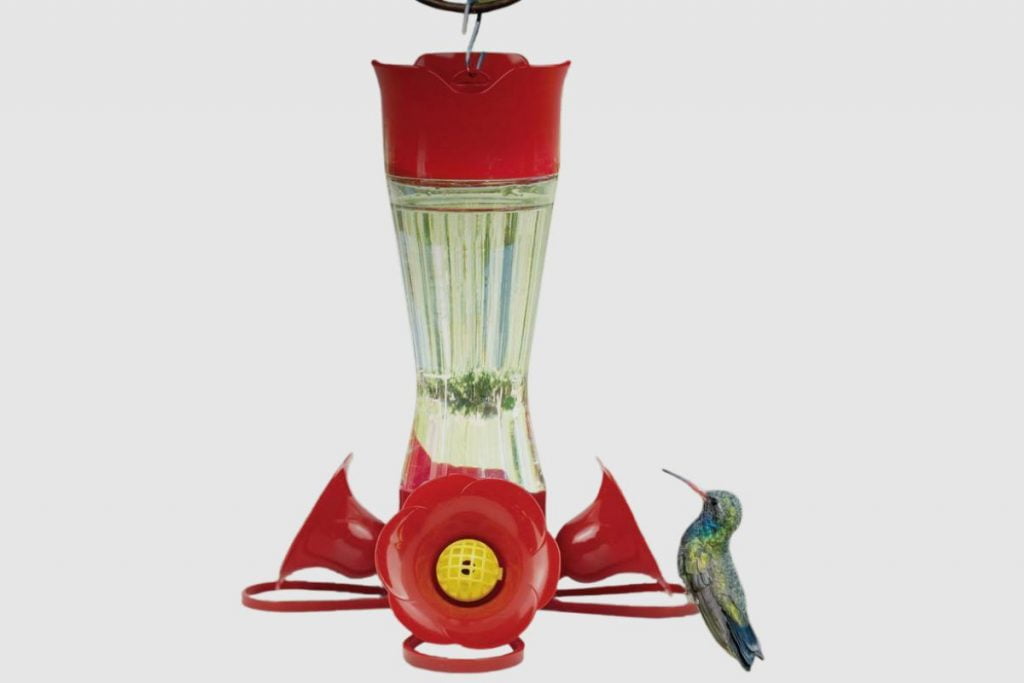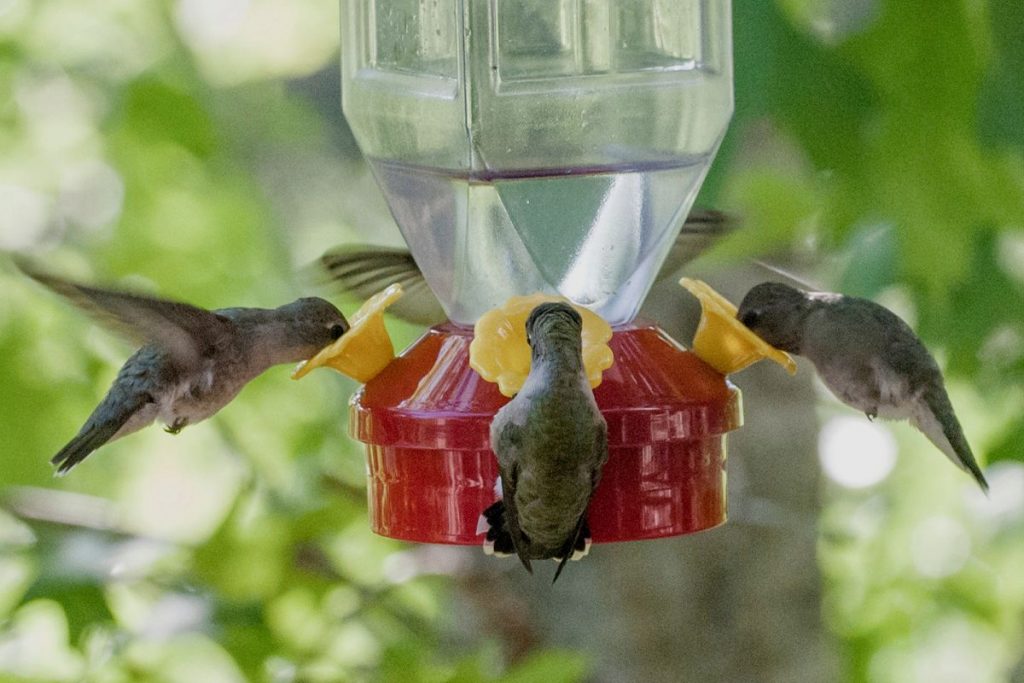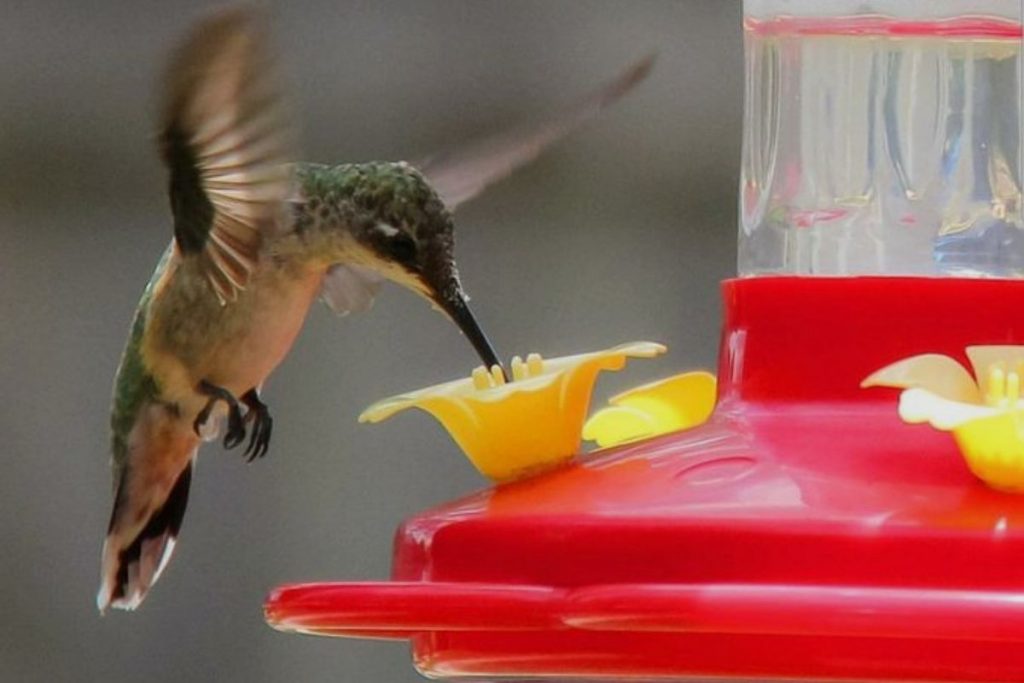Keeping your hummingbirds healthy and happy is a priority for many birdwatchers and nature enthusiasts.
One of the most important steps in creating a healthy environment for your feathered friends is to ensure that their food source, such as a hummingbird feeder, is consistently kept clean and filled with the right type of food.
To maintain the proper level of energy for the birds, you need to know when to change the sugar water in a hummingbird feeder.
When Should You Change The Sugar Water In A Hummingbird Feeder?
The frequency at which you should change out the sugar water in your hummingbird feeders will depend on several factors, including how hot and humid it is outside, how often birds are visiting your feeders, and how much rain has recently fallen in your area.
Mainly, it’s best to change out the solution every 3-4 days during warm weather months (or more frequently if needed) and once per week during colder months if you live in an area with cold winters.
If you notice signs of mould or other contamination before this time frame passes, then you should change out the solution immediately, as it may have become unsafe for your feathered friends to consume.
- When Should You Change The Sugar Water In A Hummingbird Feeder?
- What Is a Hummingbird Feeder?
- How Much Sugar Water Should Be Put in a Hummingbird Feeder?
- What Steps Should You Take To Properly Clean The Hummingbird Feeder?
- How Can You Ensure That Your Hummingbirds Receive The Proper Nutrition?
- Conclusion
- Image Gallery – When To Change Sugar Water In Hummingbird Feeder
Related Posts:
What Are Hummingbirds?
Best Hummingbird Feeders.
Hummingbird Feeders Comprehensive Guide.

What Is a Hummingbird Feeder?
A hummingbird feeder is an essential piece of equipment for anyone looking to attract and observe hummingbirds in their backyard or garden. It is typically made from red plastic and consists of two parts: a bottom reservoir that holds the sugar water and an upper bucket portion that serves as a landing platform for the birds.
A metal or plastic tube runs from the bottom reservoir to the top so that the sugar water can flow up into the bucket portion, which also features small-diameter ports for the birds to drink from. As hummingbirds drink from the ports, oxygen from outside air mixes with the sugar water and helps keep it fresh and safe for consumption.

How Much Sugar Water Should Be Put in a Hummingbird Feeder?
The amount of sugar water that should be placed in a hummingbird feeder will depend on its size, but it is typically recommended that 16 ounces (equivalent to 2 cups) of sugar water should be placed into each feeder at least once per day. When making the sugar water solution, use 4 parts warm water to 1 part white granulated sugar (regular table sugar). Do not use honey or any other type of sweetener, as they can be potentially harmful to hummingbirds if ingested over time. Additionally, never add any artificial colouring agents or red dye, as this can be dangerous for birds as well as other wildlife in your area.
What Steps Should You Take To Properly Clean The Hummingbird Feeder?
In order to provide optimal nutrition and safety to your feathered friends, it’s important to clean both parts of your hummingbird feeders at least once per month (or more often if needed).
To clean the top portion of your feeders, simply use mild unscented dish soap and warm water, then rinse thoroughly with cool running water before refilling with a fresh sugar water mixture.
For cleaning out the bottom reservoir portion of your feeders, first, empty out any remaining solution, then fill it halfway with warm soapy water and let it sit for 20 minutes before rinsing with cool running water until all soap is removed from all surfaces inside and outside of both parts of your hummingbird feeders before refilling them with fresh solution again.

How Can You Ensure That Your Hummingbirds Receive The Proper Nutrition?
In addition to providing fresh sugary water on a regular basis, there are some additional steps you can take to ensure that your hummingbirds receive proper nutrition while visiting your feeders as well:
- Avoid using any artificial sweeteners or red dyes when making up new batches of sugar solution
- Clean your feeders regularly to prevent the build-up of bacteria, mould, and other contaminants
- Provide additional sources of nutrition such as insects, berries, and flower nectar in addition to sugar water
- Monitor the amount of sugar water that you provide to ensure that it does not exceed the recommended daily amount.
Conclusion
Keeping your hummingbirds healthy and happy is a priority for many birdwatchers, and one way you can help them reach their full potential is by understanding when to change out the sugar water in your hummingbird feeders.
By following the tips outlined in this article, you can ensure that your feathered friends are receiving all the nutrients they need to thrive in their environment.
Image Gallery – When To Change Sugar Water In Hummingbird Feeder




References: Hummingbird, Bird Feeder.
